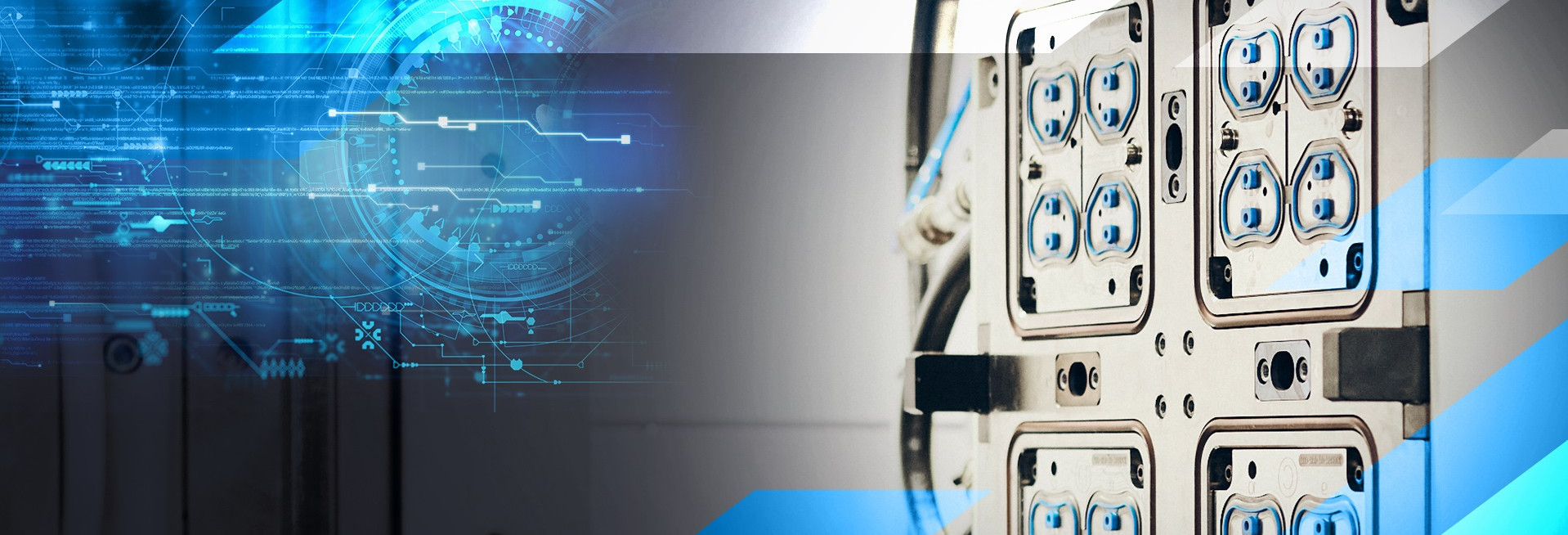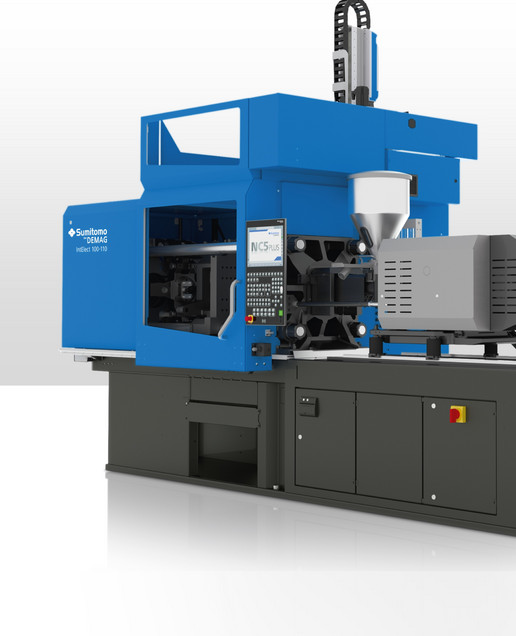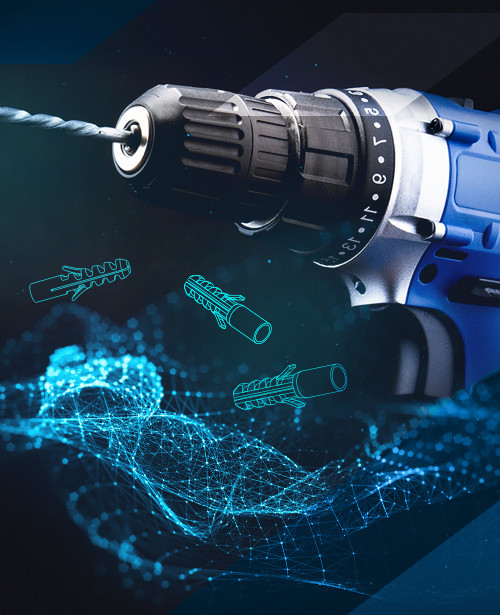Highest flexibility for complex parts
Liquid Silicone Rubber (LSR) injection moulding is a manufacturing process that involves mixing two component materials and injecting them into a mould, where they are cross-linked into a solid part. The process can produce parts with complex geometries and low wall thickness. Additionally, LSR parts are biocompatible, which means they are safe for use in medical applications.
LSR machine package
With our LSR equipment package for our all-electric IntElect, we supply the full scope regarding silicone processing, including LSR injection unit, robot, vacuum, heating, cooling and interfaces to peripherals. Furthermore, all dosing devices of main suppliers can directly link metering measurement data with the IntElect processing data via OPC-UA, ensuring a fully traceable and stable production process.
Supply of the two-component material by an LSR metering unit (if needed, adding an additive, e.g. colour)
Mixing of the LSR in a processing unit with a cooled static mixer
Feeding of the material into the cooled plasticising unit
The injection unit injects the LSR material into the mould, while a vacuum pump removes air from the cavity to ensure that the LSR material does not trap air and that the entire mould is filled with material
Cross-linking of the material in the heated injection mould
Removal of the injected article
Mixing and metering unit
Temperature control system
Vacuum pump
- High precision and accuracy for small and intricate parts
- Design flexibility for complex shapes and designs
- Consistent quality and repeatability
- Wide range of material properties for various applications
- Medical industry (syringes, catheters, hearing aids)
- Baby-care (for example pacifiers)
- Automotive industry (gaskets, connectors)
- Consumer goods industry (phone cases, kitchenware)
- Electrical industry (cable insulation, connectors, sensor housings, insulators)







